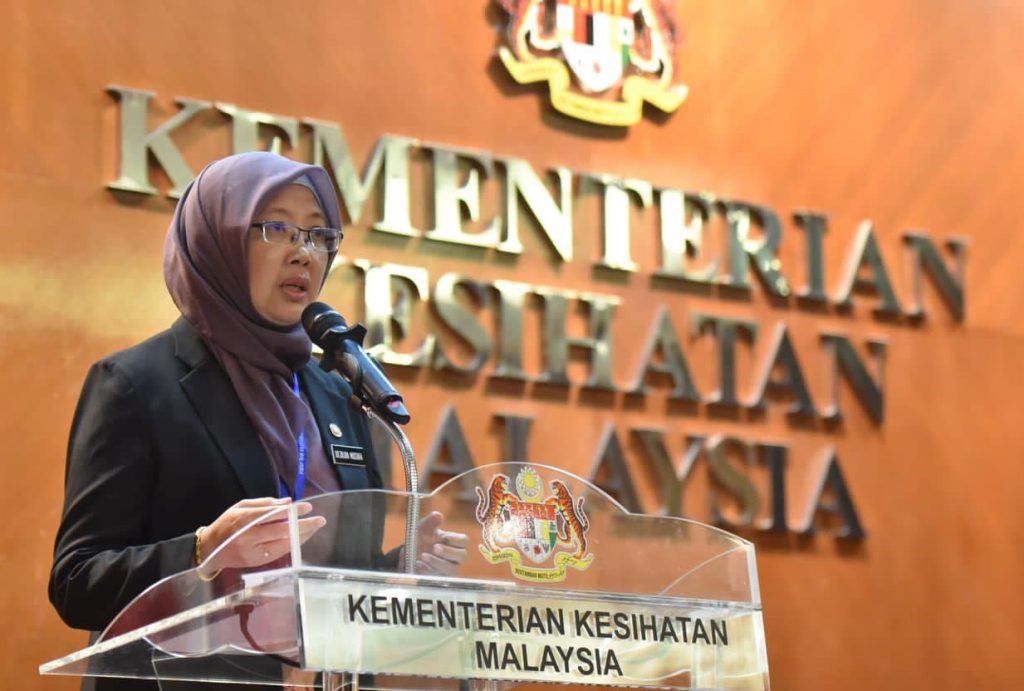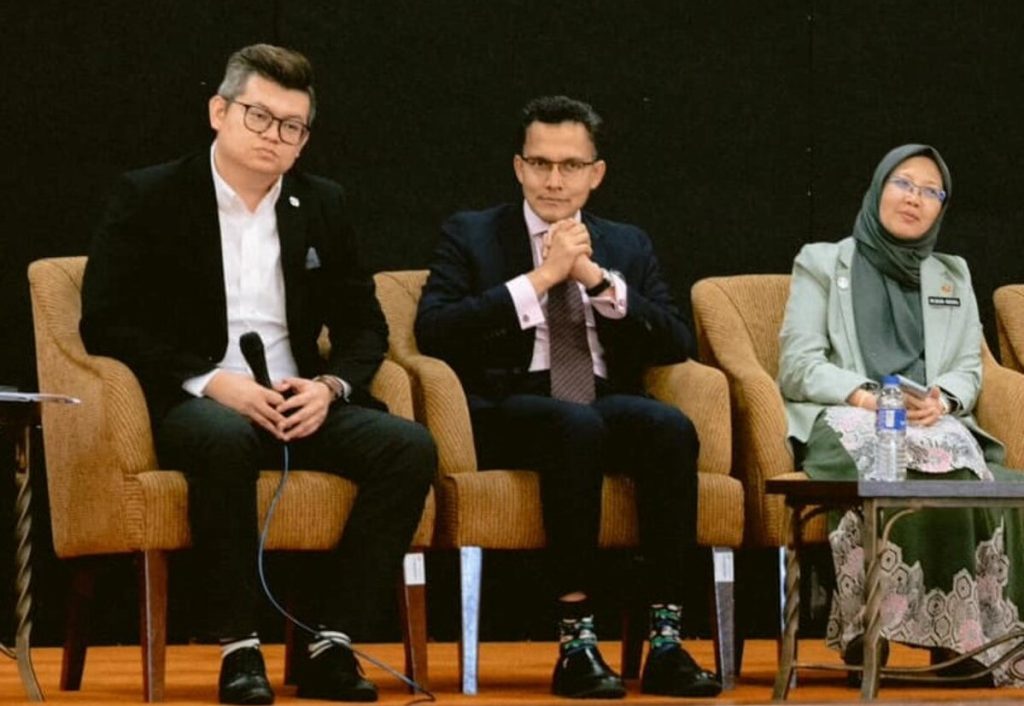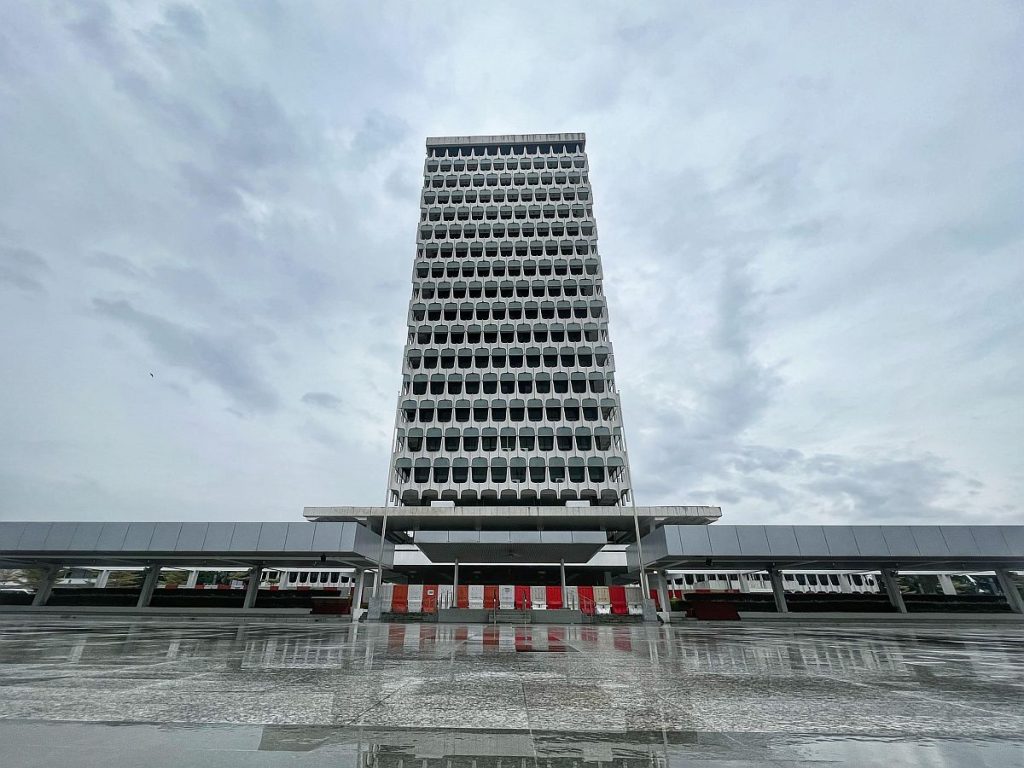I fully expected the Control of Smoking Products for Public Health Bill 2023 not to pass the Dewan Rakyat in the last parliamentary meeting.
But what I didn’t expect was for the tobacco bill to not even reach second reading for debate in the House.
The referral of the Control of Smoking Products for Public Health Bill to a parliamentary special select committee (PSSC), immediately after first reading in the Dewan Rakyat, was unprecedented in the recent history of the Malaysian legislature, where government bills are routinely passed in a matter of days.
Health Minister Dr Zaliha Mustafa, when referring the tobacco bill to the Health PSSC, did not announce when the government targeted to take the bill to second reading, not even promising an October date in the next Dewan Rakyat meeting.
After Dr Zaliha shocked the nation by exercising her ministerial authority to remove liquid and gel nicotine from control under the Poisons Act 1952 last March 31, she issued a statement the subsequent day to say that the Ministry of Health (MOH) aimed to table the Control of Smoking Products for Public Health Bill in May.
Yet, the government only tabled the tobacco bill last June 12, just three days before the end of the Dewan Rakyat meeting on June 15.
After the bill was referred to the Health PSSC chaired by Kuala Selangor MP Dzulkefly Ahmad, Dr Zaliha did not issue a statement to say whether or not liquid and gel nicotine would be reinstated into the Poisons List. She has just stayed silent.
It is beyond the realm of imagination for the State to leave e-cigarettes and vape completely unregulated, allowing children legal access to nicotine. This is the government actively perpetuating harm on its people.
Yet, this breathtaking public policy disaster is happening in real life – under Dr Zaliha’s watch, Malaysia’s first woman health minister who previously declared her passion for women’s and children’s issues.
The tobacco bill came to life last year under Prime Minister Ismail Sabri Yaakob’s government as the Control of Tobacco Product and Smoking Bill 2022, but died when the 14th Parliament was dissolved for the 15th general election.
The bill was resurrected under Prime Minister Anwar Ibrahim’s administration in the 15th Parliament as the Control of Smoking Products for Public Health Bill 2023, but, like a zombie – the slow Night of the Living Dead type, not the fast-moving World War Z creatures – it now lurches around aimlessly, scaring MPs from coming near it.
Undead.
The sale of e-cigarettes and vape to minors aged below 18 in Malaysia remains legal for the foreseeable future – without any other restrictions on advertising, promotion and sponsorship (it’s Wild Wild West on social media); nicotine content (as high as 5 per cent) and flavours (think Charlie and the Chocolate Factory); distribution channels (vape vending machines are already being tested); or retail locations (e-cigarettes are already available on foodpanda).
How did we get here across two different administrations and two different Parliaments?
Health Minister Dr Zaliha Mustafa

Medical doctors are responsible for their individual patients, hence the Hippocratic oath – first do no harm – but ministers make policy for a population of millions.
At the Dewan Rakyat’s Special Chamber last June 12 – which discussed a two-year-old’s nicotine poisoning case from vape and the death of a 16-year-old girl from probable e-cigarette or vaping use-associated lung injury (EVALI) – Dr Zaliha pointed out that nicotine poisoning cases occurred in previous years, even while liquid nicotine was still classified under the Poisons Act. (The teenage girl’s death last June 5 was reportedly the first EVALI-linked fatality in the country).
The health minister also claimed that the public still understood that nicotine was harmful despite the delisting of liquid nicotine as a poison, and that enforcement on vape and e-cigarettes could be done with “other” agencies.
Yes, the Ministry of Education (MOE) can prohibit smoking and vaping in schools, but the MOE has no jurisdiction beyond school walls. Local councils or state governments can also ban the sale of vape, like what Johor has done. But these are band-aid solutions for a gaping wound opened by the federal regulator of health itself.
The role of the State – in this case, the MOH – is to protect the public by drafting and enforcing policies, legislations, and regulations.
Regulations on things like tobacco are also not simply about punishing people, but function as a very strong message from the government that these products are harmful and should be avoided.
Verbal statements from the health minister and the MOH that vape and e-cigarettes are harmful – while legally declassifying liquid nicotine as a poison – carry no more weight than a private citizen and a non-governmental organisation (NGO) urging people not to use these products.
What can a mother, who’s trying to discourage her 15-year-old daughter from vaping, say if the teenager retorts: “If it’s harmful, how come I can buy it legally?”.
If e-cigarettes were pervasive in previous years despite their illegal status, resulting in nicotine poisoning or EVALI cases, that was the fault of weak enforcement under the previous health ministers and governments. But surely the solution is not to legalise harmful substances without any regulatory controls, thus preventing any enforcement whatsoever.
For example, drivers still run the red light even though it’s an offence. Should the government “solve” this problem by removing traffic lights altogether?
Make no mistake. This isn’t a case of “business-as-usual” on the basis that vape has been around (illegally) in Malaysia for years. The declassification of liquid nicotine had specific consequences, such as spurring the flood of Chinese vape manufacturers into the Malaysian market, the emergence of print advertisements of e-cigarettes in restaurants and malls, and even unproven health claims by the industry that vape is a smoking cessation tool (previously, the industry never publicly made this claim that requires specific pharmaceutical evidence).
Dr Zaliha has displayed discernible apathy towards a bill in her own portfolio ever since she took office, barely talking about the tobacco bill on social media or in public statements (little or no mention on World No Tobacco Day last May 31 either). The blitz of communications about the Control of Smoking Products for Public Health Bill only occurred in the 72 hours before the June 12 tabling.
While it may have been a Cabinet decision to tax e-cigarette and vape liquids with nicotine from last April 1, as the health minister, Dr Zaliha bears full responsibility for the delisting of liquid nicotine – in which she vetoed unanimous objection from the Poisons Board – and the subsequent failure of the tobacco bill.
The reason why we have ministers – instead of a one-member Cabinet comprising the Prime Minister overseeing every single ministry – is because each minister is supposed to understand and make policies and legislations in their own portfolio (subsidiary legislations like regulations only need ministerial approval without going through Parliament). So, when Cabinet makes overarching policies involving different ministries – in this case, the MOH and the Ministry of Finance (MOF) – the outcome is a cohesive policy.
Yet, the government itself uses the term “lacuna” to describe the current situation. Dr Zaliha, as the representative of the MOH, should have convinced Cabinet that opening a gap in the law as deep as the Mines of Moria would unleash a massive and irreversible public health threat from the vape epidemic, particularly affecting vulnerable populations like women and children.
If Cabinet was fully aware of the consequences of deregulating liquid nicotine for tax purposes before passage of the Control of Smoking Products for Public Health Bill – but had insisted on it anyway – then perhaps Dr Zaliha should have resigned as minister in protest of the collective Cabinet decision.
That would have sent a powerful message to the government that it’s completely unacceptable to expose Malaysian children to nicotine addiction. The nation would have been proud of Malaysia’s first woman health minister exercising the office of YBMK with honour, dignity, and principle.
Health Minister’s Special Advisors: Dr Kelvin Yii and Dr Helmy Haja Mydin

The health minister’s special advisors – Dr Kelvin Yii and Dr Helmy Haja Mydin – share the blame for the undead status of the Control of Smoking Products for Public Health Bill.
Both Dr Yii and Dr Helmy have been involved with the tobacco bill ever since Dr Zaliha’s predecessor, Khairy Jamaluddin, first proposed the tobacco generational end game (GEG) in January 2022: the former in his previous capacity as the chair of the Dewan Rakyat special select committee on health, science and innovation in the 14th Parliament and the latter in his previous capacity as a technical advisor to the health minister for tobacco control.
While both men may say that they’re not the minister, their positions as special advisors to the health minister come with some responsibility (and the associated praise or blame for any success or failure). If they have no real power or responsibility, then why take the job?
Dr Helmy told BFM last May 30, “I would say there are far more positive responses this time around compared to last year”, when expressing his confidence in passage of the Control of Smoking Products for Public Health Bill.
I don’t know how the Health Minister’s special advisor could have said this publicly when a Cabinet meeting four days prior on May 26 had already decided to send the bill to a PSSC after tabling in the Dewan Rakyat.
As it turns out, despite the “far more positive responses” that Dr Helmy thought he saw with the 2023 bill, the outcome is actually worse this year because the Control of Smoking Products for Public Health Bill didn’t even get a debate in Parliament, unlike the 2022 tobacco bill that reached second reading last year.
Despite however many meetings Dr Yii and Dr Helmy may have had with MPs before the tabling, both should have known that most legislators cannot commit their support before seeing the bill, especially since the tobacco bill is highly controversial among parliamentarians on both sides of the divide, whether from the 14th or 15th Parliament.
Why was the Control of Smoking Products for Public Health Bill tabled so late on June 12, instead of during sittings last month, or even during the first parliamentary meeting of the year from February before the April 1 tax on nicotine-containing e-liquids kicked in?
I am also very surprised that Dr Helmy did not immediately announce his resignation as Dr Zaliha’s special advisor after she signed the dotted line on the delisting of liquid nicotine. I would have thought that as a consultant respiratory physician – who has personally seen patients suffering the effects of smoking and vaping – Dr Helmy would have found the health minister’s actions unconscionable.
While Dr Yii may not have been the Pakatan Harapan (PH) whip, the PH Youth chief and Bandar Kuching MP should have tried harder to get MPs – especially from the DAP, his own party, or the PH coalition – to support the Control of Smoking Products for Public Health Bill. Yet, not a single PH lawmaker issued a public statement to endorse the bill.
Instead, Sungai Buloh MP R. Ramanan from PKR, a freshman MP, held a press conference last June 7 to criticise the tobacco bill, a rare public expression of a government lawmaker’s stance against a government bill.
If the GEG was the main sticking point with politicians, then Dr Yii and Dr Helmy should have pushed hard early in the year to decouple it from the tobacco bill, instead of risking throwing the baby out with the bathwater.
We don’t even have the basics in place yet – a Tobacco Control Act – under which the government could have imposed a slew of tobacco and vape regulations, like a dramatic reduction in the number of retail outlets for tobacco and vape products to limit sale to specialty stores (like what New Zealand did for tobacco); plain packaging; and a ban on all vape flavours. You don’t need the GEG to drastically cut smoking and vaping rates.
Like Dr Zaliha, both Dr Yii and Dr Helmy have not issued an apology to the Malaysian people for the abdication of their duty to protect the public, especially children, from the vape epidemic. Ironically, all three are medical doctors.
To be fair to Dr Yii, the Bandar Kuching MP has publicly opposed the “regressive” removal of liquid nicotine from the Poisons List. He also wrote a 1,700-word op-ed making his case for the tobacco bill: “We as policymakers are at an important juncture. Once in a while, we will be presented with a decision, the consequences of which will be felt for many, many years to come. I believe this is one of them.”
The minister’s special advisors may have tried very hard behind-the-scenes to get the tobacco bill passed, especially after the declassification of liquid nicotine. I do not doubt their sincerity. But the fact is, they failed.
And when you make a mistake – especially one with monumental consequences of serious chronic disease, death, and cycles of addiction potentially reverberating through lifetimes and generations in a 33-million population – the right thing to do is to apologise.
This is what it means to be in a position of power in public policy. Otherwise, just stick to medicine.
Members of Parliament and Anti-Tobacco Activists

I can’t be too harsh on parliamentarians for the failure of the Control of Smoking Products for Public Health Bill because, well, the government had deprived them of a debate. In fact, Health PSSC member, Kuala Langat MP Dr Ahmad Yunus Hairi, told Dr Zaliha at the Dewan Rakyat Special Chamber that the select committee had never even asked to further review the tobacco bill.
Due to the absence of parliamentary debate, we don’t know the official stance of various MPs on the 2023 bill that was drafted based on recommendations from the PSSC chaired by Khairy in the 14th Parliament.
But we do know of some apprehensions that emerged from the Dewan Rakyat debate on the 2022 iteration of the tobacco bill last August. MPs have legitimate concerns, from the constitutionality of the GEG to the fear of losing voter support. And yes, opposition from constituents is indeed a valid reason for elected representatives not to support a bill.
Instead of organising a random pro-GEG run event, anti-tobacco advocates should have focused on meeting MPs on both sides of the divide to make their case for the Control of Smoking Products for Public Health Bill. This is a new Parliament, with a whole new batch of parliamentarians.
Just because statements promoting the tobacco bill were made last year, it doesn’t mean that MPs, especially junior ones newly elected in the 15th general election, got the message this year.
Arrogance and sanctimony are not the way to convince politicians.
What might have persuaded more MPs to support the tobacco bill was if anti-tobacco advocates had rallied and organised parents, school teachers, child rights activists, and teenagers aged 16 and younger (i.e the 2007 cohort targeted in the GEG), instead of restricting the issue to the medical fraternity of doctors and pharmacists.
Campaigns among parent-teacher associations and child rights groups could have begun immediately after liquid nicotine was declassified last March 31, so that politicians would face public pressure from grassroots campaigners for two whole months before the bill hit the House in June.
Having said that, Members of Parliament should remember their duty as legislators. Some MPs may be proud of how they quit smoking or are strict with their children about it, but their personal life is completely irrelevant to making legislation for 33 million people.
I would praise a chain smoker who supports the tobacco bill for protecting public health, instead of judging the MP for his bad habit.
So, What Now?

It is clear that both the Executive and the Legislature prioritise tax ringgit over public health.
Broken promises by politicians are nothing new. And I’m not interested in the smoke and mirrors of a possible October passage of the tobacco bill, and when October comes, for yet another date and so on until the 16th general election.
The Medieval town of Hamelin lost its children after refusing to pay the Pied Piper for his services in eliminating a plague of rats. Like the Brothers Grimm fairytale, the tobacco industry is luring Malaysian boys and girls into the vape “trap” – nicely put by World Health Organization (WHO) director-general Tedros Adhanom Ghebreyesus – for a lifetime of addiction.
But all those named in this op-ed will not pay the (political) price for their abject failure to protect the Malaysian people. Government parties will not be punished in the upcoming state elections for the zombification of the tobacco bill.
This piece is not meant to shame the respective State and political actors into action. If they refuse to be held accountable for allowing minors legal access to nicotine vape – or if they lack the courage of conviction to do something now – nothing I say will change anything.
Even in politics, there are certain lines that you do not cross. To me, exposing millions of underage children and adolescents to a harmful and extremely addictive substance is one of them.
Sure, we can blame “negligent” parents, the “unscrupulous” tobacco and vape industry, the “collective” Cabinet, the “all powerful” Prime Minister, “political” MPs, “ineffective” previous health ministers, or, hell, even “immoral” kids themselves.
But, at the end of the day, the buck stops with Health Minister Dr Zaliha Mustafa, the country’s appointed custodian of public health.
“We make choices. No one else can live our lives for us. And we must confront and accept the consequences of our actions.”
— Neil Gaiman, The Sandman, Vol. 9: The Kindly Ones

Boo Su-Lyn is CodeBlue editor-in-chief. She is a libertarian, or classical liberal, who believes in minimal state intervention in the economy and socio-political issues.








